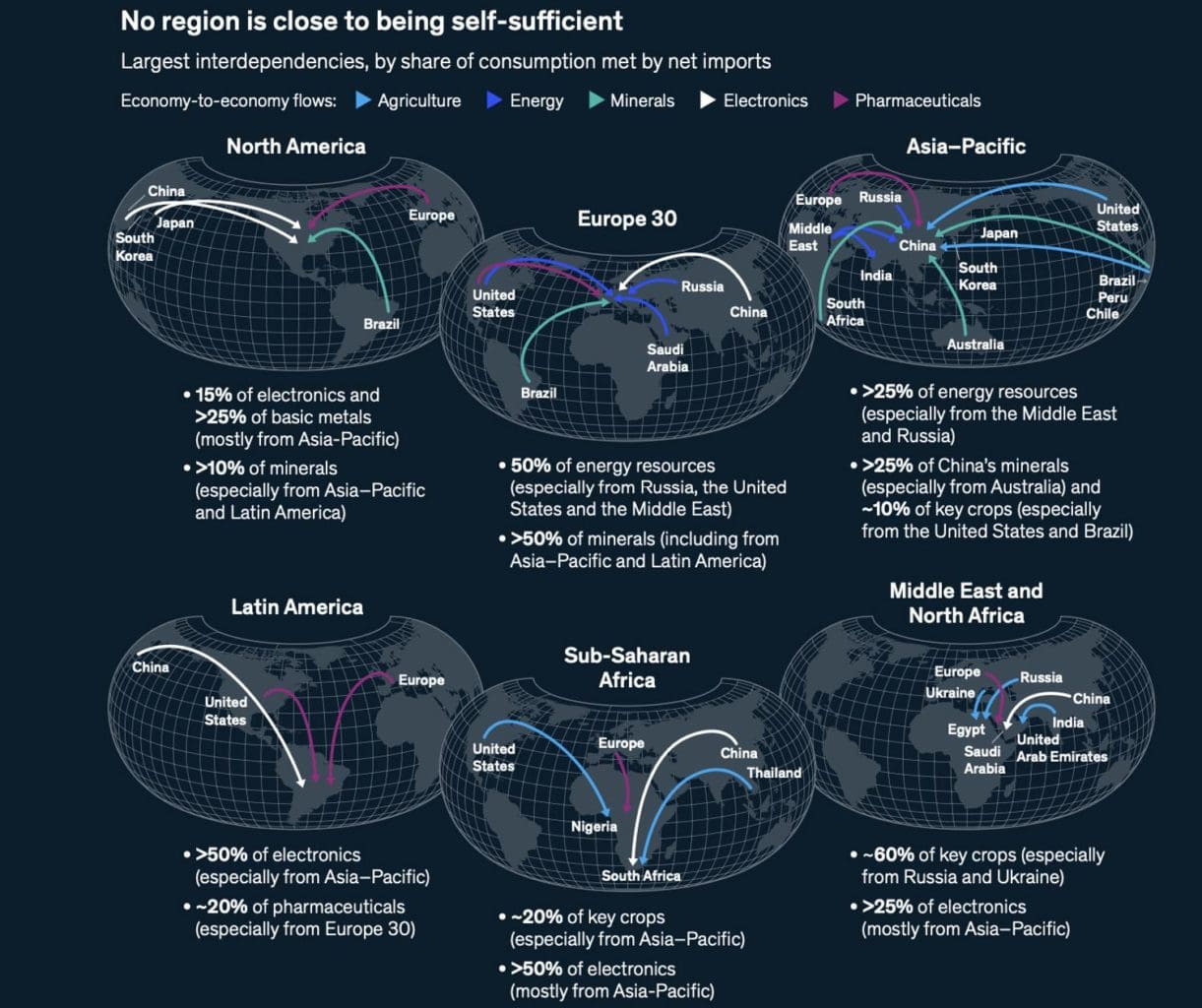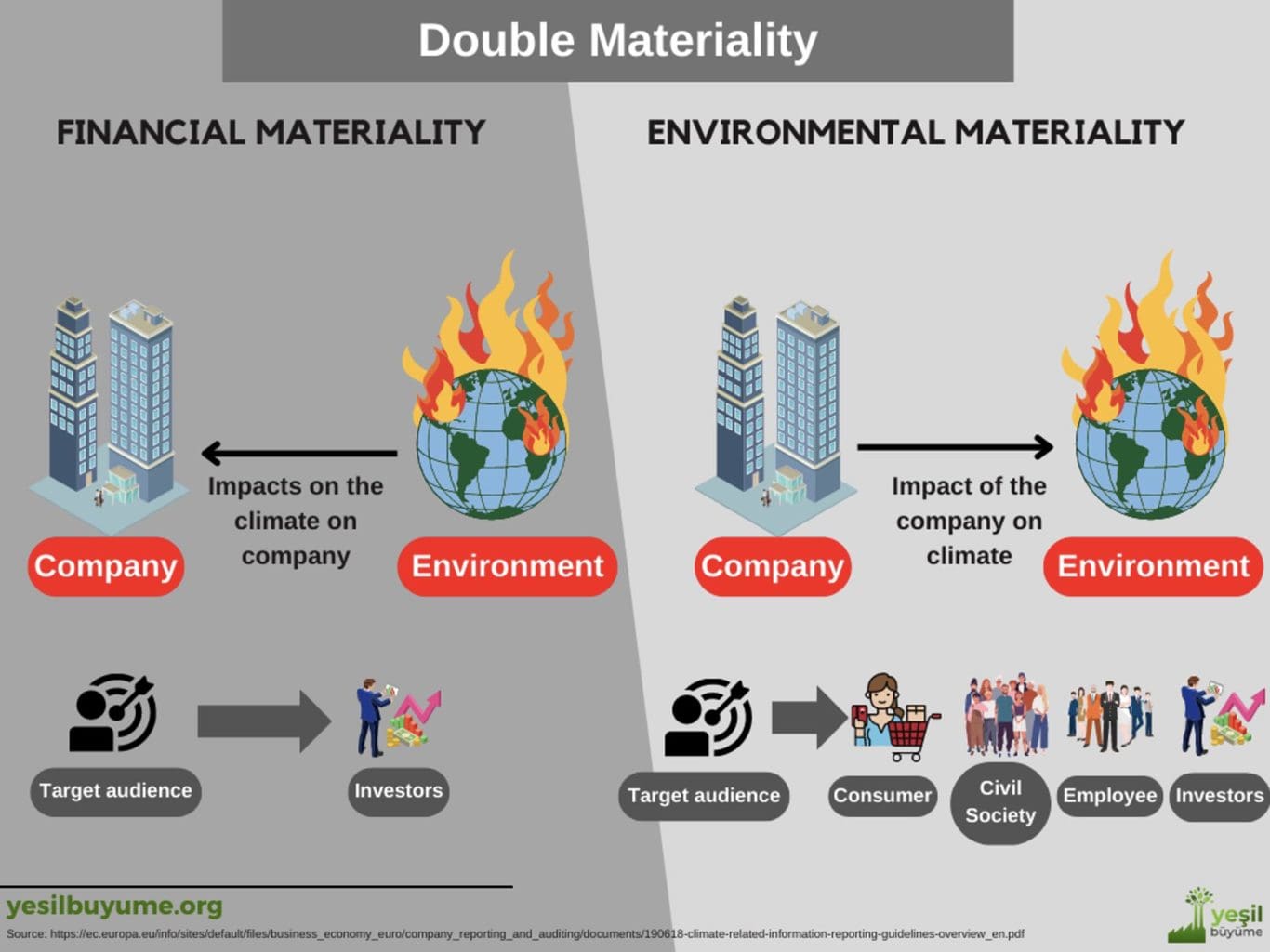|
EU Green Deal, Corporate Sustainability and Decarbonization of Global Supply Chainsby İlyas Gülenç December 20, 2022 | 7 min read |
Introduction
Achieving the net-zero target by the year 2050 is critical to curb the catastrophic impacts of climate change for future generations. Decarbonisation of the global supply chains is essential for achieving this target. According to a study conducted by Accenture, globally interconnected supply chains, which are under the tension of war in Ukraine, generate approximately %60 of global carbon emissions. Along with GHG emissions, companies and SMEs in the supply chains of multinational companies, especially those located in developing and least-developed countries, are responsible for many human rights and environmental violations due to lax regulations and lack of supervision.

Figure 1: Dependencies in Global Supply Chains (Source: McKinsey)
The policymakers in the EU are well aware that being the first climate-neutral continent by 2050 solely, in line with the main goal of the EU Green Deal, will not be a panacea for the global climate crisis. In this regard, Corporate Sustainability Due Diligence Directive and Corporate Sustainability Reporting Directive proposals are the right steps towards dealing with the shortcomings and problems in the global supply chains of EU companies.
Problems in Global Supply Chains
The GHG emissions in the supply chain are 11.4 times higher than those of a company’s operations. The ambition of global companies to reduce their costs in order to protect their market positions and competitive advantages exacerbates social and environmental problems, such as forced & child labour and hazardous waste generation in their supply chains
Even multinational companies (MNCs) are alleged to ignore human rights and environmental violations in their supply chains. Verónica H. Villena and Dennis A. Gioia from Harvard Business Review found out that many of the top-tier and lower-tier suppliers of MNCs in Mexico do not have an environmental management system in their operations. Neither do they have any mechanism to tackle human right abuses like sexual harassment.
Newly released UN reports clearly demonstrate that there are similar allegations for companies in China also, especially in the Xinjiang region. It is estimated that China has detained over 1 million Uygurs, ethnic Muslim minorities, and nearly 100.000 of them have been forced to work in the production of textiles, gloves, threads, polysilicon and other products. Justine Nolan from the University of New South Wales states:`0 “China continues to dominate the global production of garments and textiles, and so the supply chains of many global brands have been marred by associations with Chinese forced labour.” It shows that the possibility of human rights and environmental violations is relatively high in closed and authoritarian regimes. Low-cost products with gross human rights violations enable authoritarian regimes to gain competitive advantages in the global supply chains and, in turn, sustain their undemocratic practices.
Root Causes of the Problems
Many companies in developing countries lack the resources and expertise to reduce their negative environmental impacts. Ill-designed legal regulations, financial constraints, and lack of awareness about the rising importance of sustainability does not generate incentives for companies and SMEs in third countries to invest in enhancing their sustainability performances. The sustainability performances of first-tier suppliers are relatively high because of the training opportunities and financial resources provided by the MNCs. On the other hand, many lower-tier suppliers, most of which do not have contractual relations with the MNCs, and thus no so such opportunities and resources, try to meet the excessive demands in order to remain in the supply chains.
Accurate assessment of sustainability performances relies on collecting reliable information about the activities of the companies and SMEs. Lack of transparency, IT infrastructure, sustainability experts and clear legal framework make it rather difficult to collect data related to Scope-3 emissions of companies. As Peter Drucker puts it, “if you can’t measure it, you can’t improve it”. The creation of a global sustainable supply chain necessitates the establishment of a clear, comprehensive and simple sustainability reporting system at all levels of supply chains that takes into consideration the needs and capacity of small-scale businesses.
Corporate Sustainability Directives of the EU
EU wants to use the “green bullwhip effect” of its economic and regulative power by enacting “CSDD” and “CSRD” to force companies in third countries to comply with international humanitarian and environmental standards. EU industries heavily use imported intermediate goods (%65 of all imported goods) in their production processes. European companies have significant difficulties in identifying human rights and environmental violations in their global and complicated supply chains.
CSDD proposal of the European Commission aims at holding both designated EU companies and non-EU companies responsible for the human rights and environmental violations of their subsidiaries and established business partners. EU companies and non-EU companies with a 150 million € turnover in the EU will have to establish a mechanism to identify, prevent and mitigate violations of international human rights and environmental conventions specified in the Annex-I of the proposal. Companies will have to establish risk analysis mechanisms within the context of due diligence procedures for their supply chains, including lower-tier suppliers, to prevent potential violations.
Based on the double materiality principle, CSRD is expected to bring clarity and transparency to understanding the adverse impacts of companies and their supply chain stakeholders on the environment.

Figure 2: Double Materiality Principle (Source: yesilbuyume.org)
CONCLUSION
The world is going through difficult times. Rising inflation, unrest among labourers, energy crisis, geopolitical uncertainties and increasingly evident effects of the climate crisis put pressure on the well-functioning global supply chains. Having said that, the current global supply chain model is not sustainable due to its adverse impacts on the environment and human rights. War in Ukraine has halted multinational efforts on a global level to find credible and feasible solutions for eliminating problems in global supply chains.
The leadership of the EU in forcing companies to minimise their adverse environmental impacts and severe human rights violations for the sake of maximising monetary profits may trigger similar legislative initiatives in different countries. With the help of the “Brussels effect”, the EU can significantly contribute to the democratisation and decarbonisation of the global supply chains to mitigate the expected catastrophic impacts of climate change.

